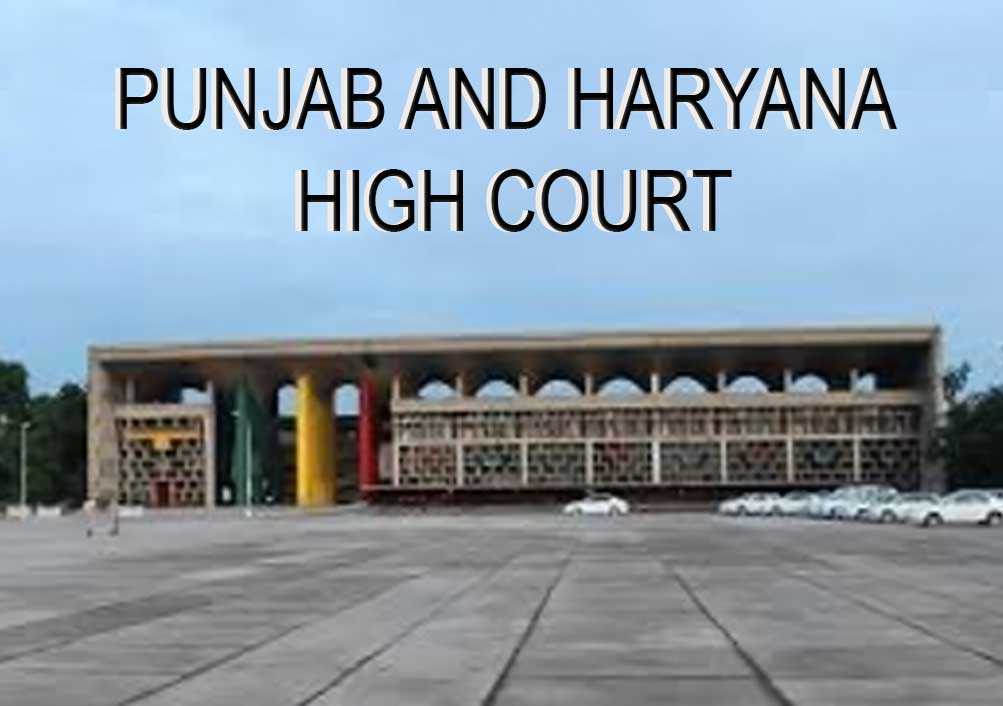Petitioners can’t claim age relaxation for recruitment of constables, sub-inspector as matter of right merely because CM tweeted in this regard: HC

Read Judgement: Navdeep Singh Brar & Ors v. State of Punjab & Anr
LE Correspondent
Chandigarh, August 12, 2021: Dismissing certain Writ Petitions filed by 56 applicants seeking age relaxation for the recruitment of constables and sub-inspector, the Punjab and Haryana High Court has affirmed that the petitioners cannot claim it as a matter of right for such relaxation or increase in the maximum age limit merely because the Punjab Chief Minister had tweeted in this regard.
This case pertains to the Punjab Police Rules, 1934, and an Advertisement issued by the Punjab Police for recruitment to the post of Sub Inspectors, in the cadre of District Police, Armed Police Intelligence and Investigation.
The petitioners conceded that they do not fulfil the age criteria prescribed in the advertisement as their age is beyond 28 years which was required as on 01.01.2021.
The Petitioners claimed that this demand of age relaxation came pursuant to an announcement made in a tweet by the Punjab CM last year saying that the state government is increasing the upper age limit from 28 years to 32 years for the post of SI and constables and the recruitment would start soon.
However, in the present notification, the upper age limit is still 28 and not enhanced to 32 years.
A Bench of Justice Girish Agnihotri stated that it was evident from the Government decision that the Chief Minister along with Council of Ministers had taken a decision as reflected in the memo dated 25.05.2016 to increase the age limit from 25 to 28 years and not 32 years.
“Amongst other decisions, the approval of the Council of Ministers in the revised memo was to authorize the Home Department to increase the age limit from 25 years to 28 years in direct recruitment of Constables and Sub Inspectors. Therefore, this Court is of the view that the petitioners cannot claim it as a matter of right for increase in the maximum age limit or for relaxation merely because the worthy Chief Minister had tweeted in regard thereto,” said the Bench.
The Bench also noted that the petitioners cannot claim their legal right based upon the judgment of the Delhi High Court in Najma vs. Govt. of NCT of Delhi as the facts and circumstances in that case were distinct.
The High Court added that in Najma’s case the observations made by the Delhi High Court were keeping in view of the fact that the tweet therein was by the Chief Minister of Delhi regarding governmental policy. On the contrary, in the present case, a prescribed procedure as per the Rules of Business was required to be followed so as to amend the statutory Rules (especially Rule 12.6 of the Rules).
The Bench also made it clear that the petitioners have no legal right to support the plea that they are entitled to age relaxation/increase in the upper age limit beyond 28 years merely because since 2016, no recruitment process had been initiated by the Government and accordingly their chances of recruitment were affected.
The Court was in agreement with the State’s contention that the decision of the ‘employer’ to fill up the vacancies at any particular time depends upon the public need, administrative exigencies and availability of infrastructure or budgetary provision.
“There is no legal obligation on the part of the State that if the vacancies have fallen vacant, the state must fill up the said vacancies immediately. There is no legal right with the petitioners to claim that all the vacancies should have been advertised prior to 2021 or even to allege that the inaction of the department in this regard can be termed as violation of any right,” the Bench noted.
The Court also opined that the petitioners cannot claim extension in the upper age limit by taking the plea of COVID situation. It was not the case of parties that an advertisement in this regard had been initially issued in the year 2019 or 2020 (when the petitioners were allegedly within the maximum age limit).
Since, the selection process apparently had not been deferred or delayed because of COVID situation, therefore the petitioners cannot claim their right for extension of upper age limit, held the Court.
“However, in the present case, it has been found that the petitioners have not been able to prima facie make out a case whereby they, as a matter of right, can claim relaxation. It is for the executive authorities who have been vested with the power of relaxation to consider all the facts and circumstances,” the Bench said.
“Before this Court, the respondents, on affidavit, have clarified that the matter was examined in the officer of Director General of Police. Various field officers were consulted and most of the field officers were not in favour of increasing the upper age limit. It has also been stated that the matter was discussed by the Director General of Police with the Chief Principal Secretary to the Chief Minister, Punjab and Secretary Home also. Therefore in the above circumstances, this Court does not find it to be a fit case to issue directions/mandamus to the competent authority to examine the issue of age relaxation,” the Bench added.
Sign up for our weekly newsletter to stay up to date on our product, events featured blog, special offer and all of the exciting things that take place here at Legitquest.




Add a Comment